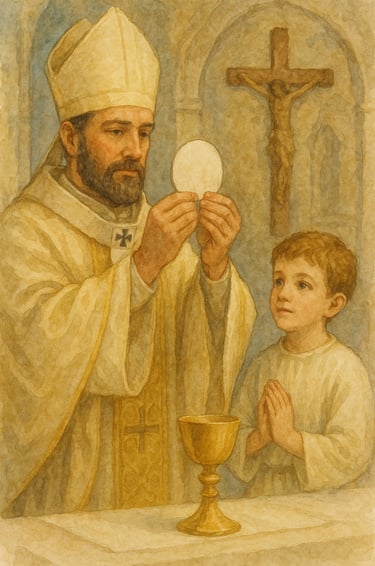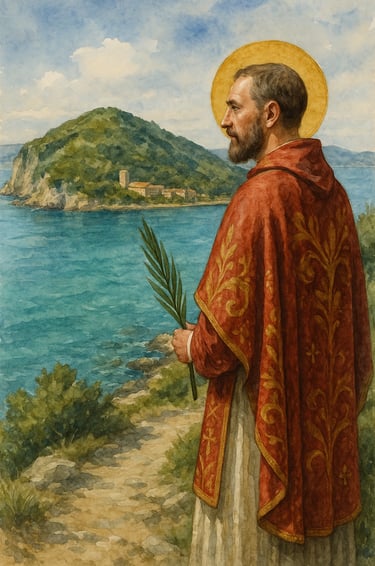St. Pope Silverius and Pope Hormisdas
Pope, Confessor, Martyr, Defender of Chalcedon; Father and Son on the See of Peter
Halo & Light Studios
6/20/20253 min read


Click Link for a reel of Daily Dose of Saints and Faithful Art:
https://youtube.com/shorts/dOBQnkjtfd8?feature=share
The Church has always stood in the tension between truth and power. And history shows us that when politics, public opinion, or cultural pressure try to bend the Church’s teaching, it is the saints who stand firm. St. Pope Silverius is one such saint—a little-known pope whose silent courage speaks volumes to us today.
Silverius wasn’t born into wealth or status. But he was born into the Church—literally. His father, Pope Hormisdas, had been a married man before becoming a priest and eventually the bishop of Rome. From this remarkable family, Silverius inherited something greater than office: a love for truth and a heart trained in obedience to Christ.
When Silverius was elected pope in 536 A.D., he wasn’t chosen for power or influence. He was chosen in a time of crisis—when the Church was being manipulated by emperors, heretics, and ideologues. The East was pressuring Rome to compromise on a core doctrine of the faith.
At the heart of the conflict was the Council of Chalcedon (451 A.D.), which solemnly declared that Jesus Christ is one Divine Person with two natures—fully God and fully man. This truth is foundational to the Catholic faith. To deny either nature is to dismantle the Incarnation and the salvation it makes possible.
But Empress Theodora of Constantinople favored a heresy known as Monophysitism, which denied Christ’s full humanity. She demanded that Pope Silverius reinstate a heretical patriarch who had been deposed for rejecting Chalcedon.
Silverius stood his ground.
He refused to betray the truth about Christ, even under immense political pressure. For that, he was falsely accused of treason by Theodora’s agents, including General Belisarius, and deposed from the papacy. Though Emperor Justinian later ordered Silverius to be recalled to Rome, the order came too late.
Silverius was intercepted on the road, captured, and exiled to the island of Palmaria. There, alone and starving, he died—a martyr not by sword, but by silence, suffering, and unshakable fidelity.
Silverius only reigned for less than a year, yet his legacy endures. He reminds us that the Church is not sustained by emperors, armies, or even popular opinion. She is guided by the Holy Spirit, and her mission is to proclaim the truth of Jesus Christ—in season and out of season.
In our world today, many Catholics are pressured to soften doctrine, redefine truth, or stay silent when faith conflicts with culture. We are told that fidelity is divisive and that compromise is compassionate.
But Silverius reminds us that the true compassion of the Church is clarity, and that compromise on truth is a betrayal of love.
Who Are You First?
In today’s political climate and blurred religious affiliations, we must remember:
Before anything else, we are called to be Catholic.
Before we identify as citizens of this country or that, before our careers, vocations, or affiliations, we are first and forever children of the one, holy, catholic, and apostolic Church.
St. Silverius didn’t die for a position—he died for a Person. And his life asks us the same question that Jesus asked Peter: “Do you love Me more than these?” (John 21:15)
Are we willing to stand with Christ when the world turns against Him?
Are we willing to be faithful when the cost is high?
Do we still believe the truth is worth dying for—even in exile?
St. Silverius, pray for us—to remain faithful, no matter the cost.


